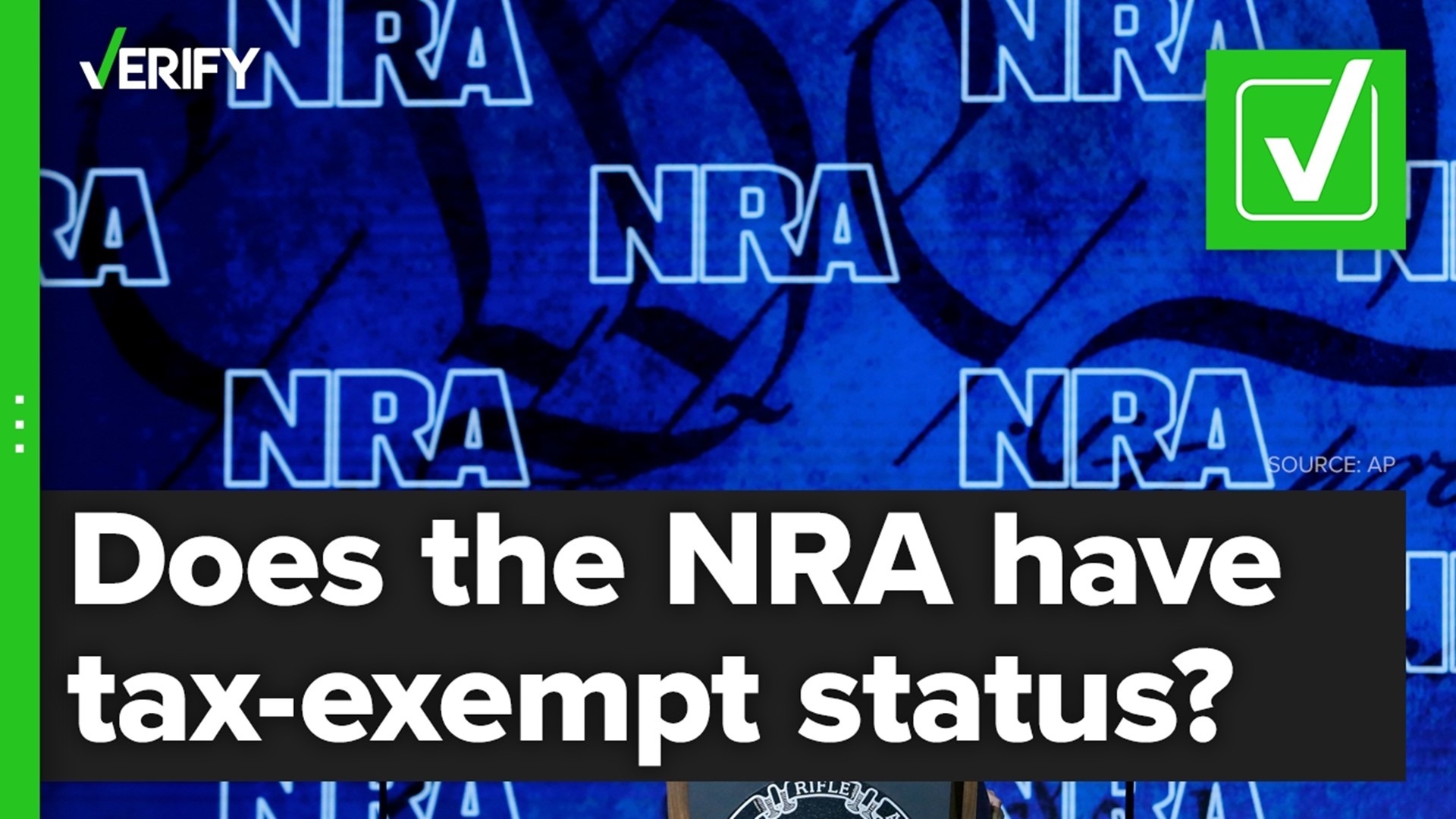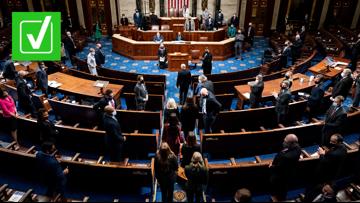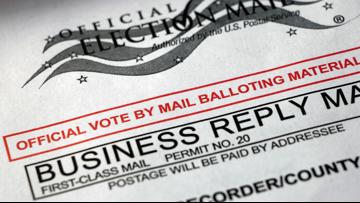After a gunman killed 19 children and two teachers at an elementary school in Uvalde, Texas, the National Rifle Association (NRA), a gun rights advocacy group, has faced increased criticism.
Call to Activism, a group with more than one million total followers on Facebook and Twitter, has launched an online petition calling for the IRS to revoke the NRA’s tax-exempt status in the wake of the Uvalde shooting. The petition has almost met its goal of 20,000 signatures as of May 31.
Viewer Kimberly also emailed the VERIFY team to ask whether the NRA is tax-exempt, which means it wouldn’t have to pay federal income taxes.
THE QUESTION
Does the NRA have tax-exempt status?
THE SOURCES
- National Rifle Association (NRA)
- Form 990 filed by the NRA for tax year 2018
- Internal Revenue Service (IRS)
- Ballotpedia, a digital encyclopedia of American politics and elections
THE ANSWER
Yes, the NRA has tax-exempt status as a 501(c)(4) social welfare organization.
WHAT WE FOUND
An income tax return filed by the NRA for tax year 2018 shows that the group filed as a 501(c)(4) nonprofit. That means the NRA is considered a “social welfare organization” by the IRS. That’s a different classification than organizations recognized by the IRS as “charities,” which file as a 501(c)(3).
The NRA, which was founded in 1871, calls itself a “nonprofit organization” on its website, which is consistent with its tax filings. The group says it has “informed its members about firearm related bills since 1934, and has directly lobbied for and against legislation since 1975.”
According to the IRS, social welfare organizations, or 501(c)(4)s, “must not be organized for profit and must be operated exclusively to promote social welfare.”
These organizations can advocate for legislation related to their mission, the IRS says. That means lobbying won’t jeopardize an organization’s tax-exempt status. They can also participate in political activities that include “donations to political committees that support or oppose ballot measures,” though this can’t be their main activity, according to Ballotpedia.
RELATED: Yes, a Tennessee bill would require drunk drivers to pay child support if they kill a parent
Unlike social welfare organizations, traditional charities classified as 501(c)(3) nonprofits are banned from participating in partisan political campaign activity and have restrictions on lobbying.
There are other differences between 501(c)(3) and 501(c)(4) nonprofits, too. Donations to a social welfare organization are not tax-deductible for donors like those that are made to a traditional 501(c)(3) charity, according to Ballotpedia.
On its donation page, the NRA also explains that contributions are not considered charitable donations.
The NRA isn’t the only major advocacy group that is tax-exempt. AARP, the American Civil Liberties Union (ACLU) and Planned Parenthood are also classified as 501(c)(4) social welfare organizations.
While the NRA is not a 501(c)(3) itself, there are 501(c)(3) charities owned by or affiliated with the group, including the NRA Foundation, the NRA Civil Rights Defense Fund, and the NRA Freedom Action Foundation.
Each of these 501(c)(3) nonprofits has a specific purpose, with one working on a get-out-the-vote initiative for gun owners and another raising money to “provide legal and financial assistance to those defending their right to bear arms.”












